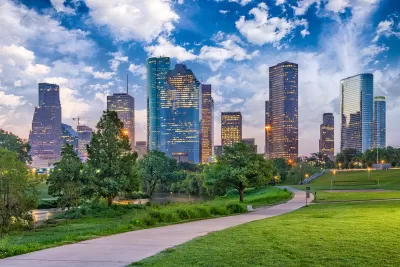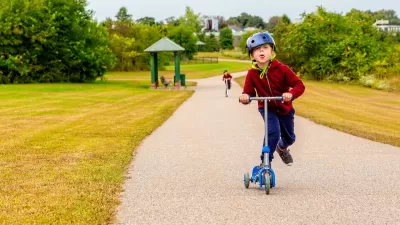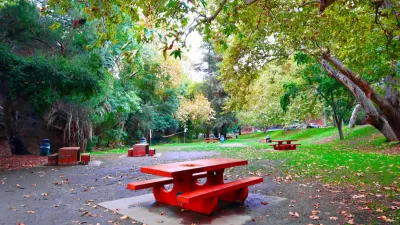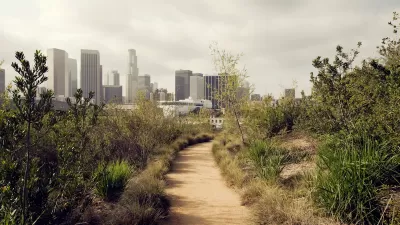Houston’s iconic signature parks mask a major underinvestment in green spaces for most of the city’s neighborhoods, according to a new report.

“Of the 13 U.S. cities with populations over one million, Houston ranks last in city spending for its parks department,” write Guy Hagstette and Elizabeth Love in the Houston Chronicle, quoting a report from the Kinder Institute for Urban Research.
“Neighborhood parks are the workhorses of our parks system, providing Houstonians with close-to-home access to all the benefits that parks provide – a place to play, exercise, enjoy nature and socialize, as well as to cool our neighborhoods and help mitigate flooding.” Although redevelopment funds and philanthropic support have made significant contributions to Houston park spaces, the report notes that “They are not a substitute for the kind of sustained, equitable funding that our neighborhood parks deserve.”
Parks expert Ernest Cook suggests that parks departments can’t rely on cities for their funding, and points to cities where a dedicated funding mechanism has been created for parks. “For example, Minneapolis operates its park system in a separate unit of government with its own taxing authority. Seattle has created a “park district” that provides revenue dedicated to managing the city’s greenspaces, similar in some ways to how our local flood control and hospital districts work.”
The report suggests a few options for Houston, including “exempting park and recreation spending from the tax cap approved by city voters in 2004,” “passing a charter amendment requiring the city to establish a dedicated fund for its parks,” and creating a parks district.
“Houston can be proud of its signature parks. However, this progress masks the poor condition of hundreds of parks, pools and community centers in neighborhoods throughout Houston that only an adequately funded city parks department can equitably address.”
FULL STORY: Houston deserves better parks. Here's how to pay for them. (Opinion)

Maui's Vacation Rental Debate Turns Ugly
Verbal attacks, misinformation campaigns and fistfights plague a high-stakes debate to convert thousands of vacation rentals into long-term housing.

Planetizen Federal Action Tracker
A weekly monitor of how Trump’s orders and actions are impacting planners and planning in America.

In Urban Planning, AI Prompting Could be the New Design Thinking
Creativity has long been key to great urban design. What if we see AI as our new creative partner?

King County Supportive Housing Program Offers Hope for Unhoused Residents
The county is taking a ‘Housing First’ approach that prioritizes getting people into housing, then offering wraparound supportive services.

Researchers Use AI to Get Clearer Picture of US Housing
Analysts are using artificial intelligence to supercharge their research by allowing them to comb through data faster. Though these AI tools can be error prone, they save time and housing researchers are optimistic about the future.

Making Shared Micromobility More Inclusive
Cities and shared mobility system operators can do more to include people with disabilities in planning and operations, per a new report.
Urban Design for Planners 1: Software Tools
This six-course series explores essential urban design concepts using open source software and equips planners with the tools they need to participate fully in the urban design process.
Planning for Universal Design
Learn the tools for implementing Universal Design in planning regulations.
planning NEXT
Appalachian Highlands Housing Partners
Mpact (founded as Rail~Volution)
City of Camden Redevelopment Agency
City of Astoria
City of Portland
City of Laramie





























